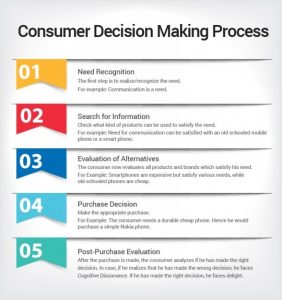Trust is one of the most important leadership competencies a leader can develop and consistently role model for their team members. It can take weeks, months, or even years for a leader to build trust. And, unfortunately, it only takes one misstep or action contrary to the leader’s or organization’s stated values to lose all the trust you worked so hard to earn.

Consider this question; Why are some leaders trusted and spoken positively about (whether they’re in the room or not) and always given the benefit of the doubt, while other leaders are not trusted, even when they should be? Recently, one executive we were coaching was talking about a peer when he stated, “Do you know how to tell when he’s lying?” When I gave him a puzzled look, he added, “His lips are moving.”
People either trust you, or they don’t, and there is very rarely any middle ground. What inspired this blog is our recent work with a highly trusted leader who, over the course of a couple months, lost the trust of almost everyone on her team. When we reviewed what behaviors and actions had eroded this trust, the following were shared by her boss and direct reports:
- She had a new boss who raised the bar on what was expected from her as a leader and from her department. This change impacted her level of confidence, causing her to question whether she was the right person for the job.
- Instead of giving the department and individual team members credit for the team’s positive results, she started to personally take credit for the successes.
- When there were problems, she began publicly blaming individuals on the team instead of focusing on solutions.
- Instead of being a proactive communicator, she began cancelling the weekly department meetings.
- She lied to team members about what information she did and didn’t know regarding organizational changes.
- She made some promises to team members that she knew could not be kept.
- As if this long list wasn’t enough, she was also personally going through a divorce.
Fortunately, there is good news in all of this bad news. This leader was able to articulate these examples, and she knew that she had taken actions that had created (possibly irreparable) harm to the trust that her team members had in her as a leader. Her question to me was, “Is there any hope of ever rebuilding this trust?” What a great question, and my response was a tough one. “The easiest thing for you to do is to go find another job. Then, every day, do what trustworthy leaders do.” This wasn’t the answer she was hoping to hear, and her response was, “I don’t want to leave if I don’t have to, and I’ll do whatever it takes to rebuild this team’s trust in me. What do I need to do?”
We have published several blogs on the importance of trust in leadership, and it is one of the central tenets of the Loyalty Connection covered in our white paper, 8 Proven Strategies to Workplace Excellence. If, however, you are in the same boat as our leader above and trying to rebuild trust in the workplace, here are 10 actions you can take:
Recognize that rebuilding trust is going to take a long time. Most people, when they have been burned by a leader, will not respond well when the leader states, “From this point forward, you can trust me.” To expect your employees to instantly trust you again is unreasonable, and will only continue to undermine their trust in your leadership.
Admit you screwed up. Part of re-building trust is letting go of any excuse for why you did what you did to destroy the trust. Coming to confession with your team and telling them, “I made a mistake. If I had to do this over again, I want you know I would not repeat my actions that have caused you to lose trust in me. You have my commitment moving forward that I will handle this differently, and tell you the truth each step of the way.”
Do what you say you’re going to do. To build trust, you need to do what you say you’re going to do, when you say you are going to do it, long after the feeling or desire to do it has left you. If you tell someone you’re going to do something, schedule it in your calendar so you are reminded to do it. There is no good excuse for not doing what you promise others you will do.
Tell the truth. This is so easy and obvious to say, but it is much harder to do on a daily basis. Why? The reason it’s difficult to gain points for trustworthiness by telling the truth is because the only time you gain points for telling the truth is when it costs you something to do so. When an employee comes to you and asks, “Do you have a problem with my performance?” the easy thing to say if you don’t like conflict is, “I’m good with your performance.” The hard but truthful thing to say is, “Larry, that is a great question and I’m glad you took the time to ask me. I do have several problems with your performance and I want to see if you also see these issues as a problem.” Larry may not like me or this performance discussion. Although Larry may not like me, he will now most likely trust that when he asks me a question, I will give him an honest answer. Honestly communicating bad news, and sharing a vision and path to success, is one of the fastest ways to rebuild trust.
Be vulnerable. People find it easier to trust you when you are transparent. When you have the ability to say, “I don’t know the answer,” or, “I might be wrong,” or, “I made a mistake and I am glad you covered for me,” people know that you are human. People who have a high need to defend what they did wrong instead of admitting their mistake are not trusted.
Help and support others…daily. Leaders who go out of their way to help and support others in being successful demonstrate that they are more interested in other’s success than their own. When people feel that their leader truly cares about and supports their success, they will go out of their way to ensure their leader is successful.
Listen. Listening to your boss, direct reports, peers, and customers, and then acting on their feedback, is one of the quicker and more actionable ways to rebuild trust. It communicated to people that you value their opinion and are willing to act on their advice.
Give away the credit… claim the blame. When you team is successful, give all the praise and recognition to your team. When there is a failure, step up to the plate and boldly state, “I take responsibility for ensuring this problem doesn’t happen again.”
Ask for feedback. Let people know you are aware that your actions have eroded the trust of the team, and you are working hard to rebuild it. Ask people for honest feedback on which actions you are taking are working well for the team, and what people think you could do differently to be an even stronger leader.
Hold team members equally accountable. Great leaders do not have favorites. They hold all team members equally accountable to high performance standards. When leaders do this well, there will be days when not every member of the team is happy with them and their decisions. Holding all team members equally accountable means that no employee perceives the leader as having favorites on the team. This point is easy to say but extremely hard to consistently execute on a daily basis.
Gaining back lost trust is easier said than done. It will require patience, perseverance, and most of all, time. Raise your personal leadership standards, commit to them, and do right by your team. Leadership is nonexistent without the relationships you build with your employees. Without trust, you have no followers. And without followers, there is no leader.
(163)









